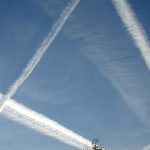Getty
- Millions of people worldwide have had one shot of two-dose COVID-19 vaccines.
- The Pfizer-BioNTech and Moderna vaccines are probably 80% effective against symptomatic COVID-19 after one dose.
- A single AstraZeneca shot is probably at least 70% effective at preventing symptomatic COVID-19.
- See more stories on Insider’s business page.
More than 60 million Americans and more than 22 million Brits have received their first dose of a two-shot COVID-19 vaccine.
The US has authorized vaccines from Moderna and Pfizer-BioNTech, while the UK has authorized Pfizer’s shot as well as one made by AstraZeneca and Oxford University. The US has also authorized Johnson & Johnson’s (J&J) vaccine, which is a single dose.
The UK is delaying the second dose of the vaccines for up to 12 weeks to prioritize giving people their first shot. In the US, the Centers for Disease Control and Prevention (CDC) has recommended giving second doses of Pfizer’s vaccine 21 days after the first, and 28 days for Moderna, with an interval of up to 6 weeks in “unavoidable” situations.
Read more: COVID Vaccine Tracker: J&J’s shot joins Moderna and Pfizer, AstraZeneca and Novavax up next
The data for how well the vaccines work after one dose isn’t clear cut – it depends on what you’re measuring, and when you’re measuring it. Stephen Evans, professor of medical statistics at the London School of Hygiene & Tropical Medicine, and a former Drug Safety Committee member at the European Medicines Agency, helped Insider breakdown the data.
Evans said that the Food and Drug Administration (FDA) presentation of the data from late-stage trials was the best data available. This is how much protection one shot of each vaccine gives you, based on that data.
Pfizer-BioNTech: At least 80%
Pfizer’s shot was 52.4% effective at protecting against COVID-19 with symptoms between the first and second dose, according to the FDA documents. However, the 52.4% figure includes the 11 days before protection kicks in after the first dose, so the real percentage could well be higher.
The true value lies between 29.5% and 84.5%, according to the FDA documents. There was a wide range because not many people caught COVID-19 in the trial during this time period.
Professor Stephen Evans
Pfizer’s shot was 100% effective at protecting against hospitalization and death. This was based on a small number though – only four people got severe COVID-19 in the trial after receiving placebo rather than the vaccine.
Evans said that there was “pretty clear evidence” that you get at least 80% protection – and “probably” better than 90% – for Pfizer’s vaccine against COVID-19 with symptoms after a single dose. He said that you can’t be absolutely sure what happens after 21 days, because it hasn’t been fully tested.
Evans said this was based on his overall reading of the trial data used by the FDA in their briefing document prior to authorization.
Moderna: At least 80%
Moderna’s vaccine was 69.5% effective at preventing COVID-19 with symptoms between the first and second dose, with a true value between 43.5% and 84.5%. There was a fairly wide range because the number of people that caught COVID-19 in the trial during this time period was low.
The 69.5% figure includes the 13 days before protection starts, so the real percentage could be higher.
There were a small number of people in Moderna’s trial – around 7% – that didn’t get their second dose for unknown reasons. In this group, the shot was 50.8% effective at preventing COVID-19 with symptoms for up to 14 days after the first dose, and 92.1% after 14 days.
It is unclear how well one shot of the vaccine protects against hospitalization and death because not many people got severe COVID-19 – two in the vaccine group, and four in placebo.
Evans said that you get at least 80% protection – and probably better than 90% – for Moderna’s vaccine against COVID-19 with symptoms after a single dose for 28 days. After 28 days it was unclear, because it hasn’t been tested. Again, this was based on his overall reading of the FDA data, he said.
AstraZeneca: More than 70%
Evans said that it was harder to ascertain a figure for AstraZeneca’s vaccine because late stage-trials used differing study designs, and a large US study was ongoing.
The FDA also has not yet presented the data for the shot in the same way it has done for other vaccines.
A single dose of AstraZeneca’s shot was 76% effective at protecting against COVID-19 with symptoms for at least 90 days, according to late stage trial data published in the Lancet February 19. The study authors also reported that one dose provided 100% protection against hospitalization, but the numbers were small.
Based on his reading of existing studies, Evans said that single-dose efficacy for AstraZeneca’s vaccine was probably at least 70% against COVID-19 with symptoms for the first 90 days. After this time period, it’s unclear, he said.
Johnson & Johnson: 66%
J&J looked at protection against moderate to severe COVID-19 in trials, rather than symptomatic COVID-19, like Pfizer, Moderna, and AstraZeneca.
Protection kicked in at fourteen days, and was 66.1% effective at 28 days. The vaccine’s efficacy varied depending on the country it was used in – it was 72% effective in the US, but 64% and 68% in South Africa and Brazil respectively. These countries both have coronavirus variants circulating that could partially evade antibodies.
What percentage efficacy actually means
Percentage efficacy for vaccines refers to the proportion of people that get full protection after a vaccine. With 80% efficacy, 80% of people have full protection, and 20% don’t.
For those who get full protection first time around, the second shot improves the quality of the immune response and its durability.
For the people who don’t get full protection with the first shot, some will get full protection after the second dose. Some people won’t ever get full protection from a vaccine because their immune system doesn’t respond at all.
Powered by WPeMatico






